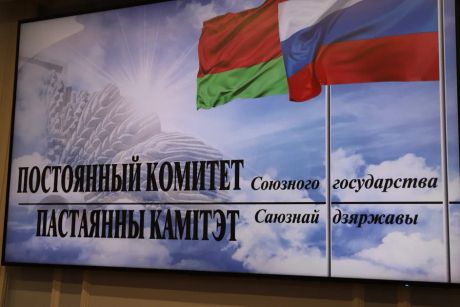Belarusian MPs ratify amendment to Convention on Physical Protection of Nuclear Material
14:03, 18 April

Photo: BelTA
The House of Representatives of the National Assembly of Belarus has passed the bill on ratifying an amendment to the Convention on the Physical Protection of Nuclear Material (CPPNM), BelTA has learned.
- Share on Facebook
- Share on VK
- Share on Twitter
The bill was brought into the lower chamber of the Belarusian parliament by the Council of Ministers on 23 February. It ratifies the amendment, which was adopted by the conference convened in Vienna, Austria on 8 July 2005 to consider amendments to the Convention on the Physical Protection of Nuclear Material.
The amendment provides for a number of substantial additions to the Convention on the Physical Protection of Nuclear Material, which was originally adopted in Vienna on 26 October 1979. Among other things the amendment covers physical protection of not only nuclear material but also nuclear installations. It clarifies goals of the convention, which aims to reach and maintain an effective level of physical protection of nuclear material and nuclear installations, which are used for peaceful purposes. The convention also aims to counteract wrongdoing involving such materials and installations and fight such crimes while promoting cooperation between states-parties to the convention with a view to reaching these goals.
The requirements to ensure physical protection during international transportation of nuclear material and protection of nuclear material during its use, storage, and transportation for peaceful purposes inside the country have been expanded and supplemented. Matters of international cooperation are touched upon in order to detect and suppress illegal movement of nuclear material, enable exchange of information between states about illegal actions in the making and targeting nuclear material and/or nuclear facilities, including sabotage, and matters of cooperation in returning stolen nuclear material. Requirements are established with regard to the protection of confidentiality of information, unauthorized disclosure of which may jeopardize physical protection of nuclear material and nuclear installations.
Belarus' ratification of the amendment will be used as a tool to improve the mechanism of international cooperation in ensuring physical nuclear protection, in preventing and suppressing theft and sabotage of nuclear material and nuclear installations, including the cleanup of negative consequences of such actions. States-parties to the convention may also share the best practices in this field, assist and share information in case of sabotage and other events.
The amendment will also help unify and harmonize legislation on physical nuclear protection with Belarus' supplier of nuclear technologies – the Russian Federation. In particular, with regard to the transportation of fresh and spent nuclear fuel of the Belarusian nuclear power plant.
The physical nuclear protection measures the amendment stipulates will help build up the public's trust in peaceful uses of nuclear technologies. In turn, it will help achieve sustainable development goals in the sphere of nuclear energy.
The opportunities the amendment opens up will allow Belarus to expand cooperation with the states-parties to the amendment in taking prompt measures to find and return stolen or smuggled nuclear material, alleviate any radiological consequences of sabotage, and prevent and fight the relevant wrongdoing.
Belarus had to accede to the convention due to common world trends in favor of stepping up the counteraction of the threat of international nuclear terrorism.
The amendment's ratification meets requirements of article 46 of the Constitution, which stipulates the Republic of Belarus develops nuclear energy for peaceful purposes and ensures safety during generation and usage of nuclear energy.






